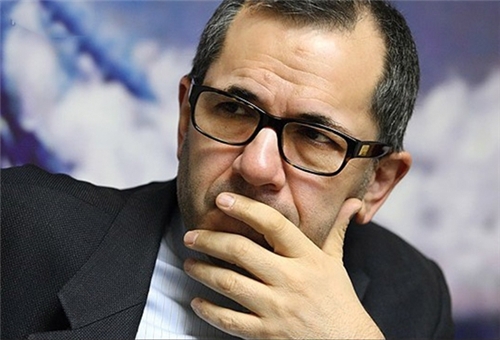Iranian Deputy Foreign Minister for European and American Affairs Majid Takht Ravanchi’s remarks came after US Assistant

Commerce Secretary David Mills signed an order on Friday to block the re-export of two large, used US-built commercial jet engines to Iran by a company based in Turkey. According to the US official, the Turkish-based 3K Aviation Consulting & Logistics planned to re-export the two engines built by General Electric Co. to Iran via Pouya Airline, an Iranian cargo airline.
"These moves will certainly not be helpful and we have announced in our meetings with the American side that such attempts will sour the atmosphere (of the talks)…,” Takht Ravanchi said.
In similar remarks on Tuesday, Iranian Foreign Ministry Spokeswoman Marziyeh Afkham also warned the West against imposing new sanctions, and said further embargos would spoil the negotiations underway between Iran and the world powers.
"Our position is completely clear and the approval of any new sanctions would mean ending the current negotiations,” told reporters in Tehran.
Asked about the US Congress’s decision to approve a new bill against Iran, she said, "We have announced earlier that such measures are against the good will, confidence-building, the path of agreement and the current trend of the negotiations and our position is fully explicit, transparent and clear.”
"Any measure adopted in this respect will be against the trend of the negotiations and will push the negotiations into failure,” Afkham warned.
On November 24, Iran and the Group 5+1 sealed the six-month Joint Plan of Action to lay the groundwork for the full resolution of the West’s decade-old dispute with Iran over its nuclear energy program.
In exchange for Tehran’s confidence-building bid to limit certain aspects of its nuclear activities, the Sextet of world powers agreed to lift some of the existing sanctions against Tehran and continue talks with the country to settle all problems between the two sides.
Then the seven countries' experts started talks on how to implement the agreement. In December, Iran and the six world powers held four days of talks in Geneva. The first experts meeting was held in Vienna, Austria, on December 9.
The Vienna negotiations among experts were scheduled to continue until December 13, but the Iranian negotiators cut short the talks and returned to Iran in protest at the US breach of the Geneva agreement by blacklisting a dozen companies and individuals for evading Washington’s sanctions.
US Secretary of State John Kerry tried to soothe Tehran’s anger over Washington’s fresh sanctions in a phone call to Zarif in December.
Later during a phone conversation on December 22, Zarif and EU's Ashton, who heads the world powers’ delegations in the talks with Tehran, decided to continue the negotiations between their experts after Christmas.
Iran and the six world powers ended a third round of expert-level talks in Geneva, Switzerland, last Tuesday in a bid to devise mechanisms to implement the interim nuclear deal struck in November.
Hamid Baeidinejad, the director general for political and international affairs at Iran’s Foreign Ministry, led the Iranian delegation which includes experts from nuclear, banking, oil and transportation sectors. Stephen Clement, who is an aide to EU Foreign Policy Chief Catherine Ashton, headed experts team of the six world powers.
FNA
 Commerce Secretary David Mills signed an order on Friday to block the re-export of two large, used US-built commercial jet engines to Iran by a company based in Turkey. According to the US official, the Turkish-based 3K Aviation Consulting & Logistics planned to re-export the two engines built by General Electric Co. to Iran via Pouya Airline, an Iranian cargo airline.
Commerce Secretary David Mills signed an order on Friday to block the re-export of two large, used US-built commercial jet engines to Iran by a company based in Turkey. According to the US official, the Turkish-based 3K Aviation Consulting & Logistics planned to re-export the two engines built by General Electric Co. to Iran via Pouya Airline, an Iranian cargo airline.